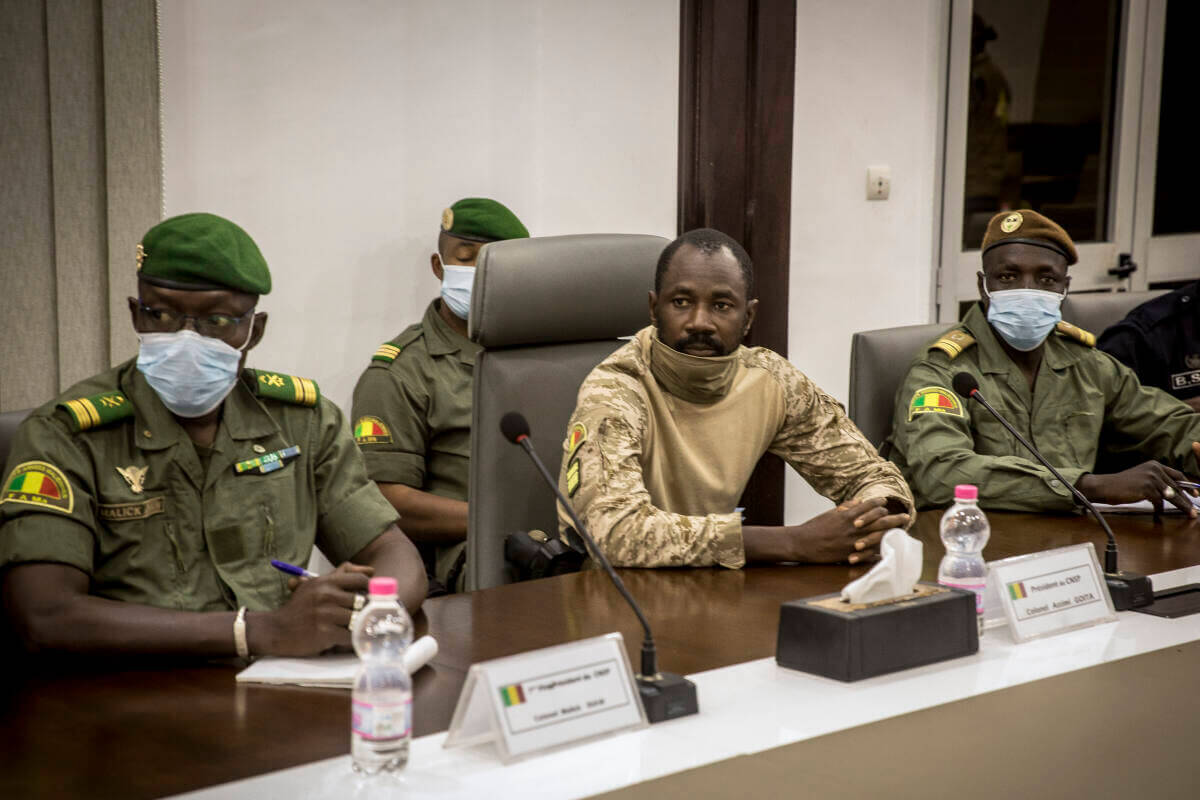There is growing consternation among the international community about the military coup that led to the forced resignation of Mali President Ibrahim Boubacar Keïta, with African and non-African states, and regional and international organizations all condemning what they see as the undermining of democratic rule.
In the immediate aftermath of the coup and Keïta’s ouster, the military junta proposed a three year transitional government, wherein the head of state would be a military figure and the government would be “mostly composed of soldiers”. This proposal was rejected by the Economic Community of West African States (ECOWAS), whose mediation team is led by former Nigerian President Goodluck Jonathan. ECOWAS remains steadfast in its demand for a return to civilian rule.
However, even that proposal seems unlikely to be honored now, as the junta, led by Army colonel Assimi Goita, came out with a statement saying that “nothing has been decided”. The spokesperson for the National Committee for the Salvation of the People (CNSP), which led Keïta’s overthrow, said, “At no time have we talked about a government mostly consisting of the military.” He added that any decision would be made in consultation with “Malians and the political parties, the unions, signatory armed groups [to the 2015 peace agreement] and civil society”. While this does leave the possibility for a return to civilian rule open, the ambiguity surrounding the statement does invite suspicion.
Such developments have invited punishment and criticism from international actors. For instance, the International Organization of La Francophonie (OIF), which consists of 88 countries where there is a significant proportion of Francophones, has suspended Mali’s membership. The Organization called for dialogue and a return to democratic rule.
Likewise, the European Union (EU) suspended training missions in the country; these missions were aimed at training local army and police. The bloc said that it would only support “legitimate national authorities” and condemned the “unconstitutional coup ‘d’état”.
Similarly, French Foreign Minister Jean-Yves Le Drian said that France “condemns in the strongest terms this grave event”. This sentiment was echoed by the United States (US) and the United Nations (UN), while the African Union’s (AU) chairman, Moussa Faki Mahamat, “strongly condemn[ed]” the “forced detention” of the President and the Prime Minister and called for their “immediate release”. He called on the mutineers to “avoid violence and respect the country’s constitution and its institutions”.
The armed forces have agreed to release Keïta from detention to allow him to “return to his home” and said that he could “travel abroad for treatment” if he so wishes. The United Nations (UN) peacekeeping mission MINUSMA announced last Friday that it had been granted access to speak with the now former President and other detainees who had been detained since Tuesday.
ECOWAS, however, is demanding that Keïta be reinstated into power, and sent a delegation to the country on Monday to continue “mediation and peace talks”. Thus far, the armed forces and political opposition have both rejected mediation by ECOWAS and indeed any foreign interference. In response, ECOWAS has imposed sanctions on the leaders of the political opposition and of the military coup.
Prior to Keïta’s resignation, the June 5 Movement (M5-RFP), which is led by the powerful imam Mahmoud Dicko and forms the most powerful section of the political opposition, demanded the dissolution of parliament, the resignation of Keïta, and the creation of a transitional government. While Keïta did name nine new judges to the constitutional court, agree to a power-sharing agreement, and commit to dissolving the national assembly and ordering a recount of the controversial legislative elections from March, the M5-RFP rejected his concessions and mediation by ECOWAS. They said that ECOWAS has an incomplete understanding of the “depth and gravity of the sociopolitical crisis which is mortgaging the future of Mali”.
Yesterday, the leaders of the military coup and the M5-RFP met with each other. The political opposition welcomed the coup and indicated its interest in participating in the transition process proposed by the military. Those calling for Keïta’s ouster were protesting the economic stagnation and instability in the country during his rule. Ironically, amid international criticism and sanctions, the situation is only likely to worsen.
International Community Growing Increasingly Critical of Mali Following Coup
Both regional and international actors have condemned the actions of the military junta.
August 27, 2020

Military junta leader Assimi Goita SOURCE: ASSOCIATED PRESS
